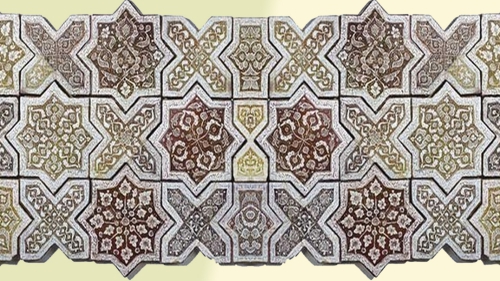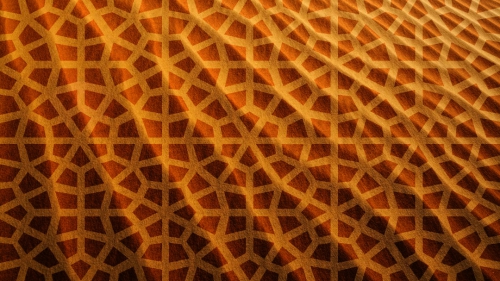Is Democracy Compatible with Islam?
While most Islamic parties have opted for democratic means to bring about the desired change, the discussion still rages on at many quarters whether democracy in any form is compatible with Islam. Intellectuals on the topic of Islamic movements such as Hasan Turabi, Khurshid Ahmad, and John Esposito have answered the question adequately.
However, the charm of restoring khilafah has elicited a great response from some individuals and organizations that would not give consideration to anything else. No doubt, it is a noble undertaking and all committed Muslims should work for it. But realistically, given the status quo, it could only be a long-term project. Even the logistics of work for it are enormous given the fact there are 1.2 billion Muslims inhabiting a vast expanse of land that encompasses a multiplicity of countries with a great diversity of backgrounds, ideas and approaches. Meanwhile, an Islamic system first has to be brought into a certain community, in a certain country to serve as a nucleus before efforts for the institution of khilafah could culminate successfully.
Let us review some of the major requirements from Qur'an and Sunnah. The khilafah - vicegerency is not bestowed on any person, family or a particular group of people but on the whole community of believers, (the Ummah) collectively that has agreed to establish God's will in their lives as His agents. This is clearly laid out in the Qur'an: " Allah has promised those of you who believe and do righteous deeds that He will, of a surety empower them as vicegerents (yastakhlifannahum) in the land even as He empowered those that preceded them"(24:55).
Thus every believer is an equal participant in this khilafah and no individual or a group of individuals has any right to usurp this collective right of the believers. Nor any number of individuals, howsoever privileged, can specifically claim khilafah for themselves to the exclusion of all other believers. This is the characteristic that distinguishes Islamic khilafah from government for a certain class or religious elite. The principal distinction between Islamic khilafah and democracy based on Western concept is as follows. Whereas Western democracy is based on the principle of sovereignty of people, Islamic democracy is based on sovereignty of the real Sovereign - God and the supremacy of God-given laws, the Sharia. Thus, the major distinguishing features of an Islamic state are the supremacy of Qur'an and Sunnah as the primary sources working in concert with ijithad (informed and disciplined rational approach) in matters not covered by the two sources.
We need to realize, however, that a khalifa does not represent God but represents his people. He enacts Sharia, which ensures the rule of law and the ruler and subjects alike, are equal before the law. The result is the creation of a moral and just society that works for the common human goodness (maruf).
The whole Islamic system at all levels from selection of top executive and others in authority to all of its common dealings must be conducted by consultations with those concerned, whether carried out directly or through their representatives. This is the well-known injunction of "shura" laid down in the Qur'an "They conduct their affairs by shura (i.e., common consultation)" (42:38). Even Prophet Muhammad who took his instructions and commands from God was instructed: "And consult them (shawirhum) in affairs (of moment)" (3:159). This principle of shura is further emphasized in various sayings of the Prophet. In view of this Khalifah, Omar was emphatic. "No khilafah, except with consultation," he admonished. Thus, to conduct affairs of the people without unhindered consultation is a grave violation of this basic principle.
The normal process that has evolved to consult a group of people or population is through their voting on a proposed suggestion. Although the procedure is not specified and, therefore, could be varied according to the requirements of times, it is clear from Sunnah of Prophet Muhammad as practiced by Khulafa Rashidoon that the head of Islamic community must be elected. If this head performs improperly, he is not to be followed and could even be removed, if derelict, as is clear from the sayings of the Prophet. Furthermore, community approval is a must. The essential principle permeating throughout this shuratic process is to gain the consent and confidence of the community and to be accountable to it.
Still another important consideration is the right of people to dissent, criticize and even oppose. This is ascertained in Qur'an under the general rubric of 'amr bil maruf wa nahi anil munkir' (to enjoin what is good and to check what is wrong) that is generally considered as the mission of the Islamic community. The Qur'an also guarantees this right by its injunction, "if you were to dispute among yourselves (fa-in tanazatum) about anything, refer it to Allah and the messenger" (4:59). Tanazu is fight, struggle, strife, contention, controversy or dispute. Thus, throughout Islamic history, movements of renewal and reform that arose in opposition to their rulers justified themselves by their appeal to this Higher Authority.
It is obvious that although conceptually different, operationally there is much commonality between Islam and good democracy. Therefore, the processes of democracy could be utilized to achieve Islamic ideals. Furthermore, democracy is not a fixed one-form system. It could be conceptually modified to conform to Islamic principles and Islamists have succeeded in attending to it. This is what has happened in some countries such as Pakistan, Iran and Sudan. Also, a number of Muslim majority states in Nigeria within the confines of their democratic constitution, are enacting Sharia and so also the Islamic parties that won democratically want to enact it in their states within the democracies of Indonesia and Malaysia. But it must be realized that Sharia is not a magic wand and that its simple promulgation will produce the expected results. For that metamorphosis to take place, the conduct of people and its leaders must conform to Islamic ideals, which is a continuous process of commitment and struggle with all of its supporting structures in place.
Islamic movements from their very inception have realized that there is perfect compatibility between Islam and democracy based on peoples' right of consent and participation in the affairs of their lands. The conflict apparent in Muslim countries is between the Islamic aspirations of its people and selfish secularization policies of their rulers to whom departing colonialists handed over rule in order to maintain the hegemony of Western powers. The incompatibility is between the Islamic ideals and narrow vision of status quo despots and dictators responsible for negation of democracy and usurpation of fundamental human rights of their citizens. Esposito and others have correctly pointed out that "the global processes of religious resurgence and democratization can be, and in the case of Muslim world, are complementary." Khurshid Ahmad concurs: "Islam and true democratization are two sides of the same coin. As such, democratic processes and Islam would go hand in hand." And that "democratization is bound to be stepping stone to Islamization. The fulfillment of Islamic aspirations would become possible only through the promotion of democratic processes."
American Muslims could use the democratic processes to tolerate the differences of opinions as well as to benefit from opinions and experiences of the diversity of their community. Radwan Masmoudi, Executive Director of Center for the Study of Islam and Democracy, advises that through the use of democratic practices we could achieve the ideals of tolerance, dialog, respect, coexistence and cooperation - principles taught and practiced ,by, Prophet Muhammad. The companions of the Prophet and early Muslim scholars would resolve their differences and always conclude with the remark that 'this is my opinion and God knows best' realizing that they could be wrong. We could thus engage the American Muslim community to listen to opposing views and opinions and resolve our differences and disagreements peacefully through debate and discussion with our brothers-in-Islam as well as with others of the American society. This will be in conformity with the Qur'anic command: "Invite to the way of your Lord with wisdom and beautiful exhortation, and argue with them in ways that are best and most gracious; for your Lord knows best who has strayed from His path and He knows those who receive guidance" (16:125).
The reasoning of Muslims who argue that we should not participate in a non-Islamic society is fallacious. Even the Muslims majority countries are plagued by secularization that is imposed on them and the Islamists are struggling against it by resorting to democratic means. As American Muslims, we are a minority and, therefore, limited by sharia requirements to our capacity (wusuhu) to carry out and our ability (istetaau) to bring about the desired changes within the available system. The reality is that all American Muslims including those against participation are actually participating - by living in America, serving it in different capacities and paying its taxes. It is the fort-mentality of nonparticipation that has led the American system to be used against Muslims and anymore nonparticipation will continue to further the designs of our enemies who participate.
Nonparticipation is acquiescing to whatever happens to Muslims and not taking a stand against it and challenging it. If we do not get into participation, others will make decisions for us whether we like them or not. Our limited success achieved so far has been due to participation of some active Muslims and organizations. We owe it to our Ummah, at least, to counter the negative publicity and stereotyping of Islam and Muslims that goes on in the American media and its other forums. Only by participation, we could positively influence the policies of American government and ultimately effect the American public opinion in a positive direction, which is our duty as Muslims. At a minimum it will serve as a dawa to the truth and beauty of Islam. Moreover, only through political participation and empowerment here, we could actually encourage or induce the governments in our native countries into resolving issues and to bring about the desired reform, even change through democratic means. Through political empowerment in America we could insist on democratic reforms there in order that true representatives of people, and not stooges of government are elected thereby avoiding confrontation, conflict and violence that is threatening their peace and stability. Incidentally and hopefully, this will also ultimately pave the way for the institution of khilafah.
A substantial number of American Muslims are also apprehensive of the American system finding that it is generally unjustly exercised against Muslims. In this regard law professor Azizah Al-Hibri, instructs us that we need to understand that American system provides its citizens with procedural democracy and that the achievement of substantive democracy and justice is the result of continuously working for better values. In order to bring this about, she suggests that Muslims must first achieve legal literacy. This may not be possible for all Muslims, but a substantial number of our community members or at least politically conscious leaders need to thus educate themselves urgently. Then through full and active participation in this system and forming alliances with groups that share the same objective of achieving justice, we may ultimately succeed. There are no short cuts. We, American Muslims must enlist experts into t,h,e political, economic and legal structures of American society and develop a superb discipline, capacity for hard work and work in unity as a thoroughly cohesive community. Only then we will be able to achieve the desired changes in policies and public opinion of America. And act we must by wholehearted involvement for the sake of Allah, our community and Ummah and to fulfill our God-ordained role for the goodness of humankind.
(Dr. Siraj Mufti is a retired chaplain from the U.S. Ministry of Justice. Previously he worked as a research professor at the University of Arizona in Tucson.)







